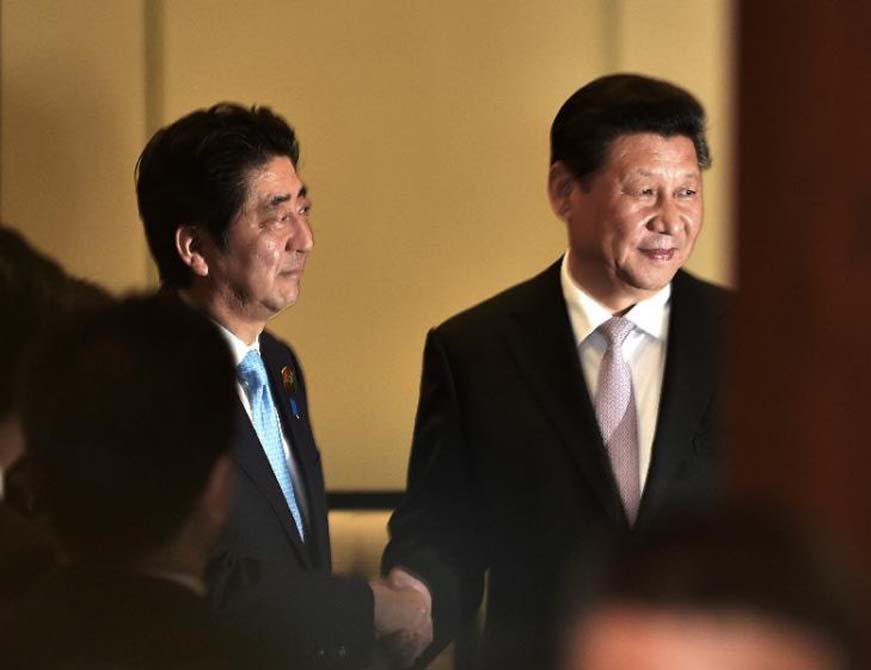
Reuters, Tokyo :Japanese Prime Minister Shinzo Abe and Chinese President Xi Jinping agreed on Wednesday to work on improving ties between the two countries, Jiji news agency quoted the Japanese leader as telling reporters.After the meeting with Xi on the sidelines of an Asia-Africa summit in Indonesia, Abe also said the two leaders agreed to contribute to regional stability and prosperity by promoting “mutually beneficial strategic ties”, Jiji reported.Tensions between Asia’s two biggest economies have flared in recent years due to feuds over wartime history as well as territorial rows and regional rivalry. Memories of Japan’s past military aggression run deep in China and Beijing has repeatedly urged Japan to face up to history.But the meeting on Wednesday could promote a cautious rapprochement that began when Abe and Xi met at a summit in Beijing late last year.Shaking hands before the talks started, the two men looked more relaxed than at a meeting at a summit in November last year in China, where they shared an awkward handshake.Beijing and Tokyo’s historically frosty relations have plunged to their lowest level in decades over competing claims to Japanese-controlled islands in the East China Sea and China’s view that Abe is not sufficiently repentant about Japan’s wartime aggression.Just before the meeting, Abe, a strident nationalist, stoked fresh regional anger by stopping short of apologising for Japan’s World War II rampage through Asia in a speech to the gathering of Asian and African leaders.He expressed “deep remorse” but did not make a “heartfelt apology” or refer to “colonial rule and aggression”, failing to echo the language of a landmark 1995 statement on Japanese wartime aggression and drawing a rebuke from South Korea. His statements at the start of the two-day summit Wednesday, which commemorates a key conference 60 years ago that helped emerging nations forge a common identity, were weaker than those by previous leaders.Referring to principles of peace laid down at the original conference, he told delegates: “And Japan, with feelings of deep remorse over the past war, made a pledge to remain a nation always adhering to those very principles throughout, no matter what the circumstances.”The speech by Abe at the Asia-Africa Summit was being closely watched for clues about a statement he is due to make later this year marking the 70th anniversary of the end of World War II.Observers are waiting to see whether he will make direct reference to his country’s “colonial rule and aggression” and express remorse and apologise, as previous premiers did on the 50th and 60th anniversaries. He suggested in a TV interview this week that he will not repeat a formal apology in the statement.For China and South Korea, which suffered under the yoke of Japan’s imperial ambition, Abe’s language is a crucial marker of Tokyo’s acceptance of guilt for its march across Asia in the 1930s and 1940s, which left millions dead.As well as the statement later this year, attention will also focus on Abe’s choice of words about the war when he heads to the United States this weekend on a week-long trip, during which he will address a joint session of congress.

